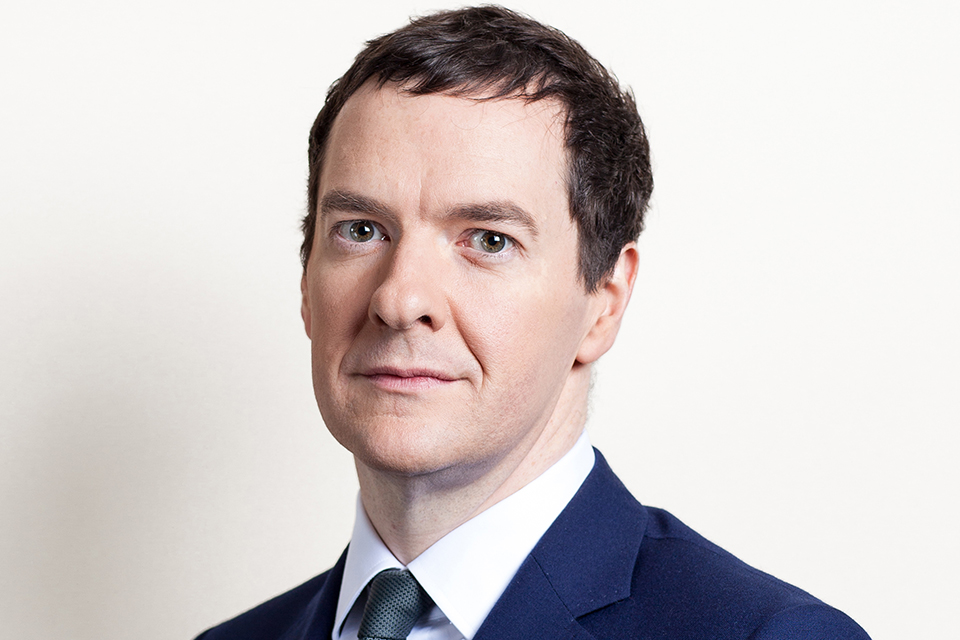Chancellor's opening remarks at the OECD UK economic survey press conference
Chancellor welcomes Secretary General Angel Gurria and his team to the Treasury, to launch the OECD’s biennial Economic Survey of the UK.

I am delighted to welcome the Secretary General and his team to the Treasury this morning, for the launch of the OECD’s biennial Economic Survey of the UK.
We already know the UK was the fastest-growing major economy in the world last year
In the last week we’ve learnt a lot more …
Employment is at its highest rate ever.
Inflation is at its lowest rate ever.
Our public finances are improving with the largest surplus since the financial crisis.
Our long term economic plan is working.
And now we have a golden opportunity to secure our prosperity for the next generation.
Yet the risks are rising abroad from the problems in the Eurozone and Ukraine, and risks are clear at home from those who would abandon our plan.
Now, at this critical time, Britain must choose competence over chaos.
It is against that backdrop that the OECD publishes its assessment of our economic policies.
And this year’s Economic Survey confirms that we have the right overall economic strategy and that the UK has made significant progress over the last five years.
Our plan has 3 components.
First, fiscal responsibility.
When I became Chancellor we had a deficit of over 10% of national income – the highest of any major economy.
Today’s report recognises the significant progress we have made in reducing our deficit, now cut by over half to 5% of GDP.
But it is still too high. We need to eliminate the deficit, run a surplus in good times and get our debt down.
Today the OECD say very clearly that the UK must stick to our fiscal consolidation plans if we want to secure the economic recovery and avoid risks to stability.
Second, our plan involves monetary activism to support demand in our economy and repair our financial sector.
The OECD have found the UK’s monetary policy, and the decisions of our independent central bank, have supported the economy through testing times.
They also highlight that the tough steps we have taken to strengthen our banking sector are having an impact – capital positions have improved and there is now a new and strong macro-prudential framework in place.
We’ve already seen that new approach in the action taken by the Financial Policy Committee over the last year to curb emerging risks in our housing market.
The third crucial part to any credible economic plan is ambitious supply side reforms to deliver sustainable increases in our standard of living.
That’s why we’ve embarked on wide ranging reforms to improve the quality of school education, increase apprenticeships, raise student numbers and invest in transport and science in the UK.
And we’ve given Britain one of the most competitive business tax regimes in the world.
I am pleased that the OECD have recognised that our welfare reforms have made work pay, boosted labour supply and supported a business-friendly environment – sustaining one of the most flexible economies in the OECD.
Even within a reducing overall budget we have shown what can be achieved if you get the priorities right. Many of these steps towards the future are now at risk for those short-term, populist urges to lower standards in schools and reverse vital reforms that are bringing record numbers of students into our universities.
Instead of going back, Britain needs to move forward.
The OECD’s report identifies areas where we can go further still to strengthen the supply side of the economy, including across education and skills, the take-up of research, land use planning and access to finance for young firms to unleash productivity.
I agree.
And I want to say something particularly about the North Sea oil and gas industry.
Overall, the fall in the oil price is good for the British economy and very welcome news for British families.
But as today’s report makes clear, that is of little comfort to the many thousands who work in our brilliant oil and gas industry.
Today I want the hardworking people whose livelihood depends on the oil and gas industry to know that the British Government is standing alongside them – and we will do everything we can to help.
We’ve already cut taxes – and if we need to we will do so again in the Budget.
The oil and gas industry is a vital national asset – and we have a plan to back it.
The future of the oil and gas industry is just one of many long-standing challenges for the UK, and the government remains committed to staying the course and delivering on our ambitious reform agenda.
Before handing over I’d like to thank the entire OECD team for the professionalism and expertise they bring to global economic policy making.
Now let me ask you all to welcome Secretary General Angel Gurria, who continues to provide exceptional leadership and rigour to the OECD and who will first set out the OECD’s findings and then take follow up questions from the audience.
Thank you.